Poll of the week: reporting leaks is part of news coverage
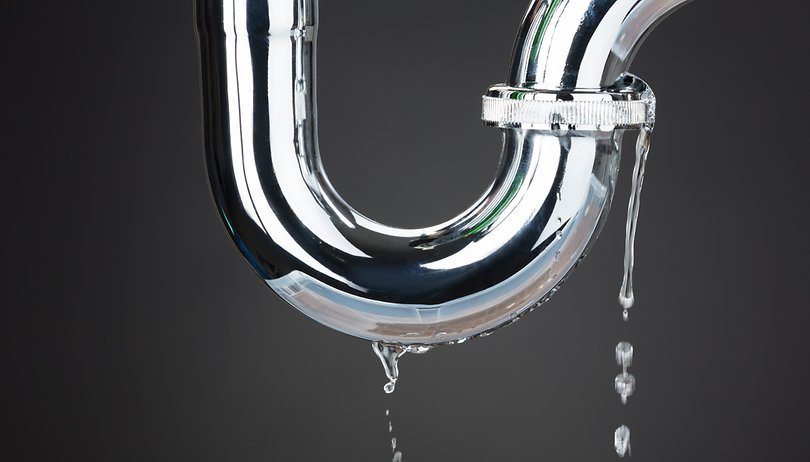

Rumors about phones or other technological products are part of the daily life of the media and don't seem to bother you, at least according to the results of our poll last week.
I asked you about the importance given to leaks and rumors on tech sites. The goal is to see what credibility you give these sources and especially what you think about the use of rumors as news sources.
Rumors already seem normal to the public
Aside from Brazilian readers, NextPit audiences said that seeing leaks appear in press articles doesn't bother them. In the case of readers of the .COM website, the acceptance rate exceeds 60%, not surprisingly. The tech audience is much more diverse and engaged in India and the US than in Europe, with a different relationship to the media, especially in the US, favoring “alternative” sources.
“From a media point of view, of course, it doesn't get any better, as this is most often the first news published about a product and the repercussion is strong,” says Sebastian, a reader of the German website. Then, to qualify: "A leak is just a trail of gunpowder running through the media. And it would be weird if the various sites didn't talk about it."
In France, Germany and Brazil, the acceptance rate is also the majority, but much more dependent on the nature of the leak and its origin, that is, the leak itself, according to 39% of German readers and 26% of French readers.
In Brazil, this conditional acceptance won even more votes (44%) than unrestricted acceptance, illustrating the importance of the quality of the rumor and the informant to be considered a legitimate source of information.
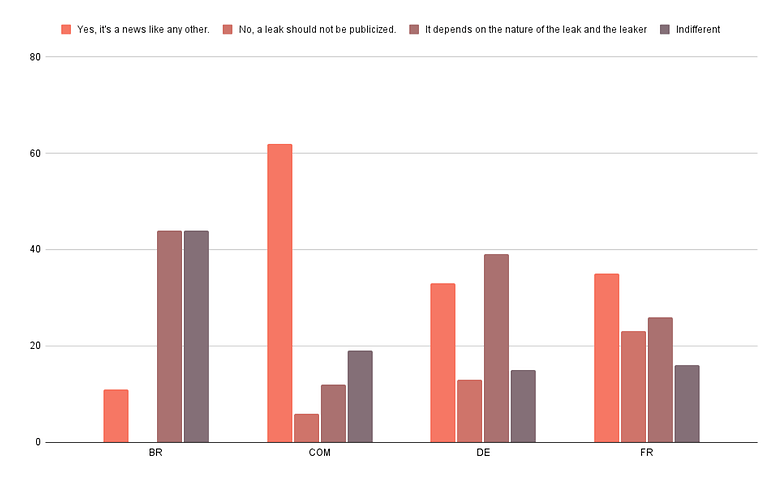
A reliability condition perfectly illustrated by the answers to our second question, which concerns the distinction you make — or not — between a good leakerand an unreliable one. The majority of NextPit readers make this distinction, almost 60% for our .COM and German readers.
In France, "indifference" received the most votes (47%), which is quite logical when we know that most readers accept seeing leaks in the tech press without conditions, as illustrated in the first question.
Once again, it is in Brazil that leakers have the lowest level of confidence. According to reader Jairo Rios, "Honestly... Most of the pseudo "leaks" come from the manufacturers just to generate hype and relevance."
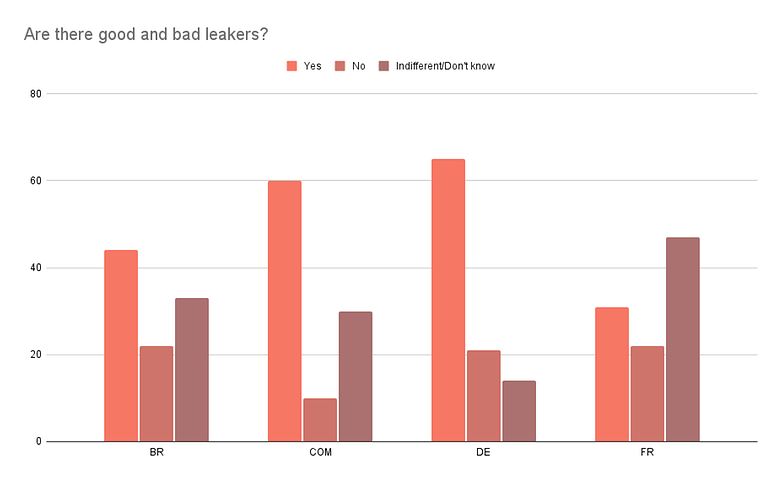
Tech rumors matter, but not at any cost
In this last question, the objective was to find out if you wanted NextPit to continue reporting or even analyzing tech rumors. The majority of readers on all of our sites answered "Yes", but with the proviso that there is some real analysis work.
An interesting point was also raised by kukrapok, a French reader. According to him, “there is often so much conditionality that it's worthless in terms of information, it fills the void while waiting for the release of real news like a newscaster who awaits the release of hostages and has no information to broadcast, but should keep the listener connected."
An interesting reflection and one that I consider quite correct, personally. In the original poll (below), I talked about journalistic time, the process by which you really needed a journalist to address an issue. And I mentioned that these processes are increasingly rare, especially in technology.
Talking about leaks, analyzing them, checking them, is nothing more than a new journalistic time that allows not only the media, but also its audience, to fill a void. A vacuum created by the culture of the immediate, the consumption of mass information.
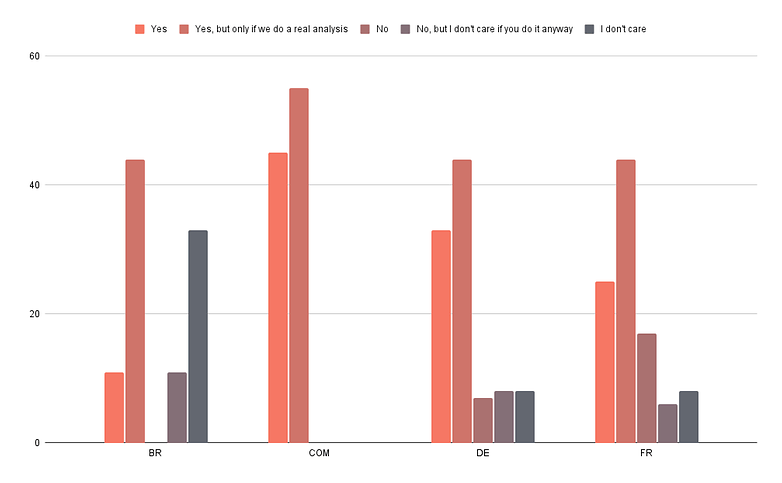
Anyway, it is the quality of the leaks themselves, as well as the quality of their media treatment by the specialized press that seem to condition this information channel, which is not so new in 2021.
These were the results of last week's poll. Thanks to all the participants and also to the NextPit Community members who developed their ideas in the comments. Please feel free to suggest topics you would like to be consulted on and share your feedback on my review in the comments.
Original article
Leaks and rumors are a common occurrence in the technosphere – and we at NextPit make no exception in our coverage. But why are these leaks, which are not always well-founded and whose sources are sometimes dubious, accepted by journalists and especially their readers?
This week, I'd like to submit to you a broader survey, less concrete than usual. Therefore, the primary objective is not to definitively decide a question but rather to launch a reflection. And it's a tweet from Marquees Brownlee complaining about the iPhone 13 leaks that inspired this poll.
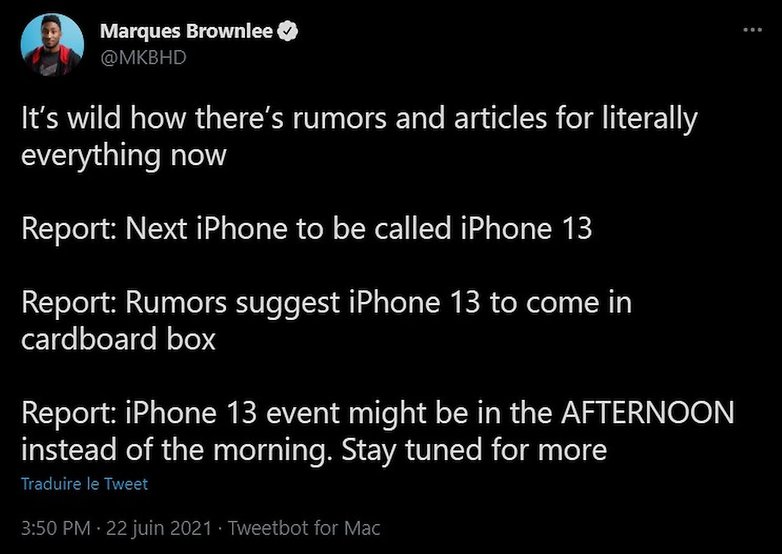
This is perhaps the phenomenon that shocked me the most early in my tech journalism career. In my days at the mainstream HuffPost, it would have been unimaginable to write a story based on rumors or gossip without being sure I could provide factual evidence or at least a credible source.
I'm not talking about investigative articles or reports that rely on necessarily anonymous sources to ensure their protection. No, I mean: I can write an article about the Samsung Galaxy S22 datasheet a year before its release without any hard facts. That would be unthinkable on a political topic for example – at least that's what I like to think.
Are you shocked by tech leaks in the press?
It's all the more striking when you consider the level of distrust of the media and the climate of hostility towards the so-called "mainstream" press.
As my colleague Stefan pointed out to me, only in sports journalism or the celebrity press is there an equivalent editorial logic. Perhaps this is because we are dealing with niche topics, where the die-hard fans are similarly knowledgeable as the journalists. The pedagogical and accompanying approach to the treatment of information would then be less important.
Perhaps it is also a question of the stakes involved? An article about a smartphone rumor, like an article about a Mbappé transfer, is less critical for the life of the city than a news article or a political report. So perhaps their factual accuracy is not as important a criterion as elsewhere.
In any case, Samsung will never officially confirm anything about the Galaxy S22 outside its own promotional plans. Whether the rumored 200MP camera module is true or false, maybe we don't care after all. Maybe what's important is the debate and discussion around this potential fact that makes the article interesting and thus facilitates its acceptance with the readership.
Are there good leakers and bad ones?
In my opinion, the reason leaks are so popular and appreciated by technophiles is because journalistic time is very limited when it comes to tech.
When I say "time", I mean the times when a tech journalist is really needed. Those times when the reporter has privileged access to information that the public would otherwise never get.
These occasions are less frequent and less systematic in the tech press than in the general press. For tech, the main journalistic moments are manufacturer keynotes, the embargo period before a product release and interviews with brand managers or any other major industry player.
You, as a reader, are less likely to be able to chat with Tim Cook than I am, for example. You're also less likely to be able to test the Samsung Galaxy Z Fold 3 before its release. And that's the whole point of a Jon Prosser, regardless of whether you like him or find him reliable or not.
The fact is that these people are doing a de facto job that, admittedly in part, is akin to journalism. The fact that Jon Prosser has made exclusive contacts within Apple gives him access that almost no journalist like me can claim. That's what makes his leaks so valuable.
On the other hand, the micro-influencer Tartempion who received a press release like everyone else and simply decides to break the embargo and publish everything before anyone else, that one is not a real leaker in my eyes. His work is only valuable for the temporary exclusivity he has fraudulently arrogated to himself.
In this logic, my logic, there would be good leakers and bad ones. What do you think?
Do you want to continue following the tech leaks on NextPit?
It would be dishonest to conclude this article without inviting some self-criticism from NextPit. Yes, my colleagues and I regularly cover smartphone leaks.
This editorial decision is obviously partly motivated by traffic reasons. If no one was interested in leaks, no one would talk about them, that seems obvious. But, without playing the saintly nun, the decision to cover the leaks is also driven by a service logic.
Since our readers seem to be interested in leaks, and since many leaks come from unreliable sources, this is a new journalistic time when the decoding and fact-checking of a journalist who knows his or her subject may be necessary.
Do you agree with my reasoning? Do you think that analyzing leaks can bring added journalistic value that you would like to see on NextPit?
So much for this slightly more philosophical and much longer than usual poll. As always, I'd like to thank in advance those who will participate and share their thoughts in the comments. I just want to wish you a good week-end and to give you an appointment on Monday to discover and analyze the results.



















